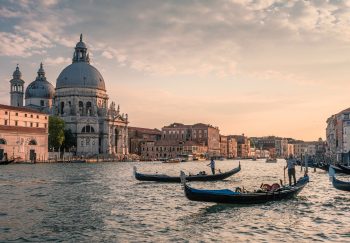After you have covered, it’s time to find accommodation. Many travelers prefer to book accommodation on-the-spot, rather than booking lodging in advance. This allows you to be more flexible in your travel plans and can be done if you wish. Personally, I prefer knowing where my head will be at night so I don’t waste precious vacation time looking for a suitable room.
You can choose to book ahead or as you travel. However, it is important to understand the terms of accommodation in Italy before you book.
Different types of accommodation in Italy
You might be familiar with some terms that are associated with lodging in Italy, but others will require you to know them. Below is a list of possible accommodation terms and their meanings.
Hotel
It is exactly what you think it to be. tel. It doesn’t have the same star rating system as other countries, but there is a star system for hotels. The amenities offered by hotels in Italy can differ from anywhere else. While some hotels may offer swimming pools, gyms and a free breakfast, others might not have an elevator. It all depends on the star rating and the age of the hotel. You will need air conditioning or an elevator to fully enjoy your stay. Make sure you read all details on any hotel description, either on the website or via a booking site.
Albergo
BER It is the same for an Italian hotel as it is for an albergo.
Hostel
In the past, hostels were strictly dormitory-style and meant for young people. Many hostels, including in Italy, have eliminated age restrictions. They offer smaller rooms and private rooms with en-suite bath options. Although private rooms in hostels are more expensive than those in 10-person dorms, they tend to be less expensive than hotel rooms. It’s important to remember that Italians can be somewhat hazy about terminology. Some hostels advertise using the words “hotel” and “guesthouse”, but if they offer dorm-style rooms or low prices, it’s likely a hostel, or a very budget hotel.
Ostello
STEL It is the same for an ostello, as it is for a hostel in Italy.
Agriturismo
I don’t think the English translations of agriturismo, which is “farm vacation” in the most common case, capture the true meaning. Agriturismo is a type of bed and breakfast that is located on a farm. However, you are not required to work on the farm during your stay. I think the term “farm holiday” implies that you will be expected to milk a cow for your room. Agriturismo has become increasingly popular in Italy. The experience can vary depending on the farm’s offerings, but it may include cooking classes or outdoor activities. Most days, you will receive at least one meal per night. Sometimes, there may be more. These places are not located in cities by default so it can be difficult or impossible to reach them without a car. You may also find agriturismi (that is the plural) mixed with hostel listings. This happens because they are more rustic or relatively cheap.
Learn more in my article about .
B&B
Although “bed and breakfast” in Italian would be completely different words, you will sometimes find “B&B” options. Although it means the same thing, Italians don’t usually eat a large breakfast spread. A fridge may be found in your room, stocked with yogurt, fruit, and all the ingredients for a good breakfast. A B&B can be a cheap hotel that offers a basic breakfast buffet.
Villa/Apartment/Vacation Rental
A vacation rental is a great option if you plan to stay in one location for longer than a few days. This is especially true if you are traveling with your family or friends. You’ll see them advertised in Italy as apartment rentals, vacation rentals, or villa rentals. You shouldn’t expect your vacation rental with butlers or a limousine unless you have photos of country estates worthy of your imagination.
Convents/Monasteries
Since ancient times, monasteries and convents have been serving as hostels for pilgrims. This tradition continues today, although it has been modified to accommodate all types of travelers. While not all monasteries and convents welcome tourists, those that do offer accommodation are usually very affordable. After that, the exterior doors will be locked and separate sleeping areas for men and women are available. Sometimes you may even need to attend services. You should check the details before booking, but you shouldn’t exclude convents or monasteries from accommodation options if you aren’t planning on being out all night, or if you’re traveling solo, they can be safe, quiet places to stay.











